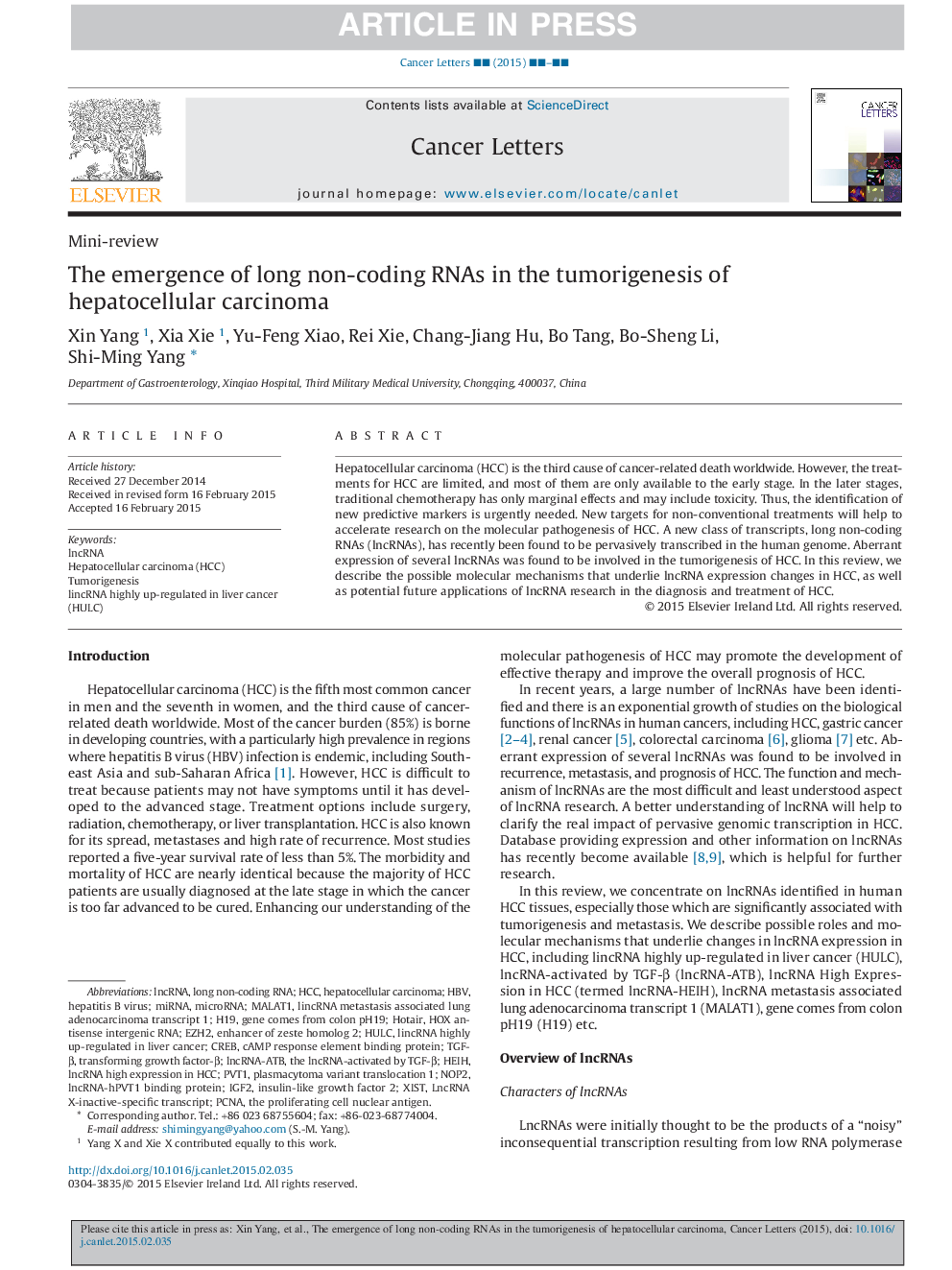| Article ID | Journal | Published Year | Pages | File Type |
|---|---|---|---|---|
| 8435407 | Cancer Letters | 2015 | 6 Pages |
Abstract
Hepatocellular carcinoma (HCC) is the third cause of cancer-related death worldwide. However, the treatments for HCC are limited, and most of them are only available to the early stage. In the later stages, traditional chemotherapy has only marginal effects and may include toxicity. Thus, the identification of new predictive markers is urgently needed. New targets for non-conventional treatments will help to accelerate research on the molecular pathogenesis of HCC. A new class of transcripts, long non-coding RNAs (lncRNAs), has recently been found to be pervasively transcribed in the human genome. Aberrant expression of several lncRNAs was found to be involved in the tumorigenesis of HCC. In this review, we describe the possible molecular mechanisms that underlie lncRNA expression changes in HCC, as well as potential future applications of lncRNA research in the diagnosis and treatment of HCC.
Keywords
CREBLncRNA-ATBHOX antisense intergenic RNATGF-βPCNAXISTPlasmacytoma variant translocation 1HULCEZH2H19PVT1IGF2lncRNAHCClong non-coding RNAtransforming growth factor-βenhancer of zeste homolog 2Tumorigenesisinsulin-like growth factor 2MALAT1MicroRNAMiRNAHOTAIRHBVhepatitis B viruscAMP response element binding proteinHepatocellular carcinoma (HCC)Hepatocellular carcinoma
Related Topics
Life Sciences
Biochemistry, Genetics and Molecular Biology
Cancer Research
Authors
Xin Yang, Xia Xie, Yu-Feng Xiao, Rei Xie, Chang-Jiang Hu, Bo Tang, Bo-Sheng Li, Shi-Ming Yang,
